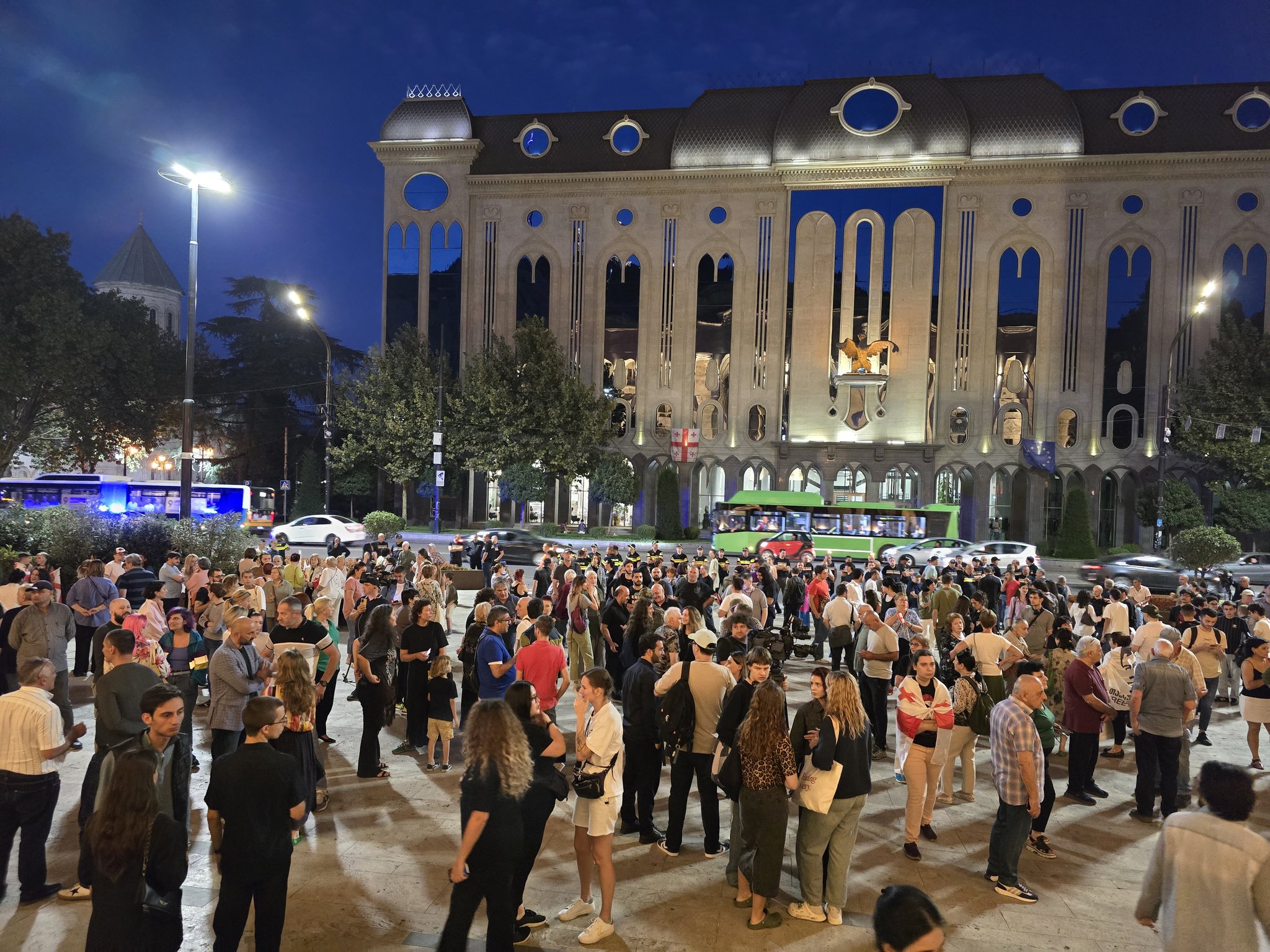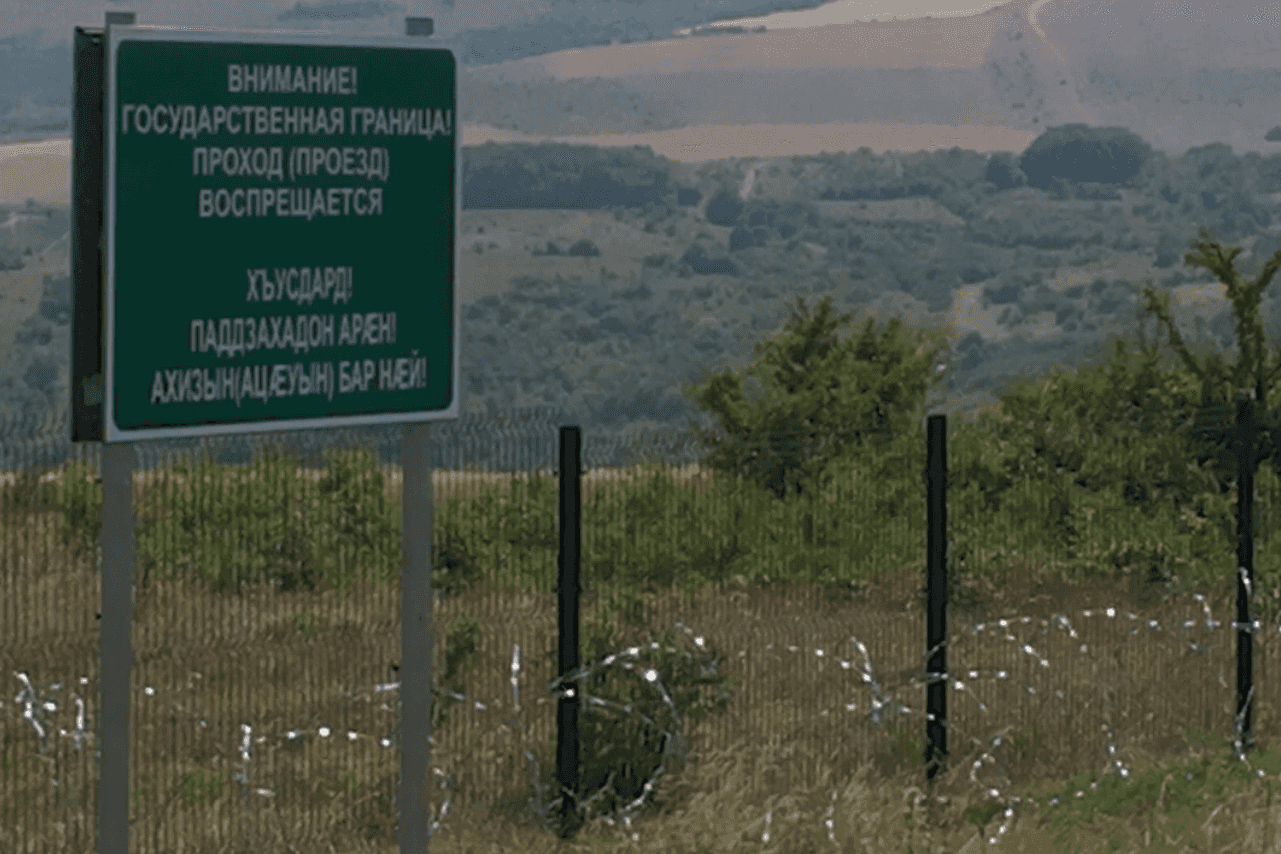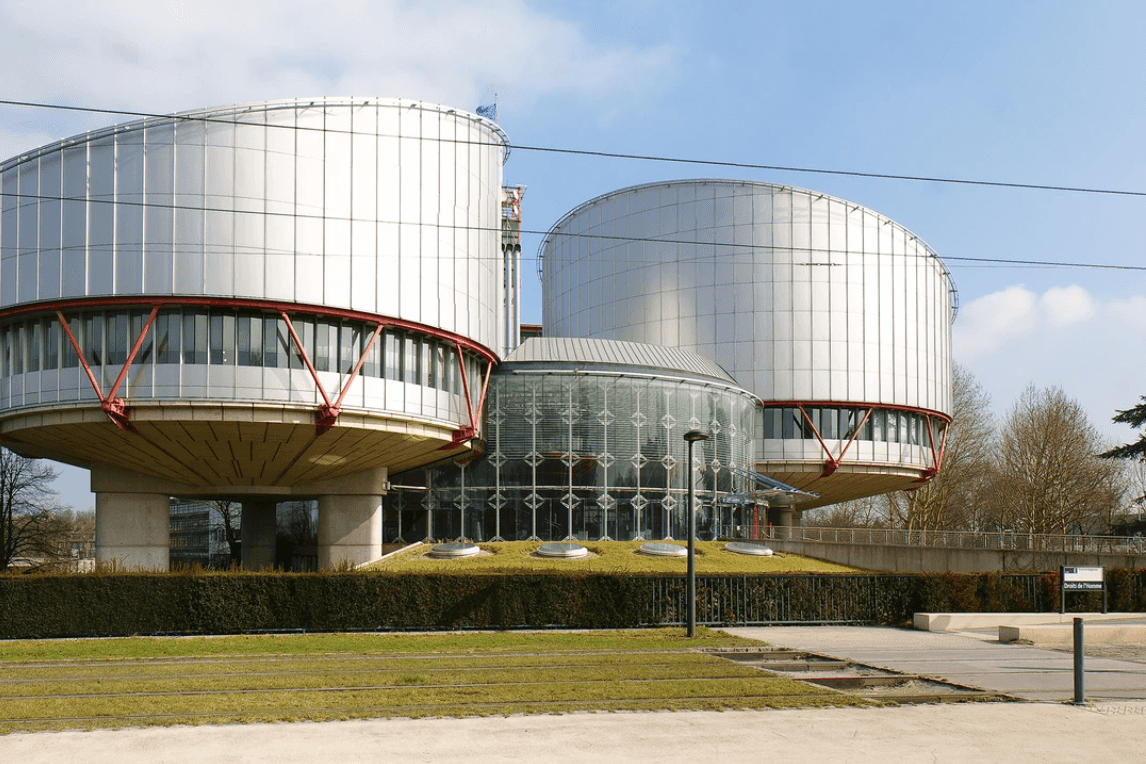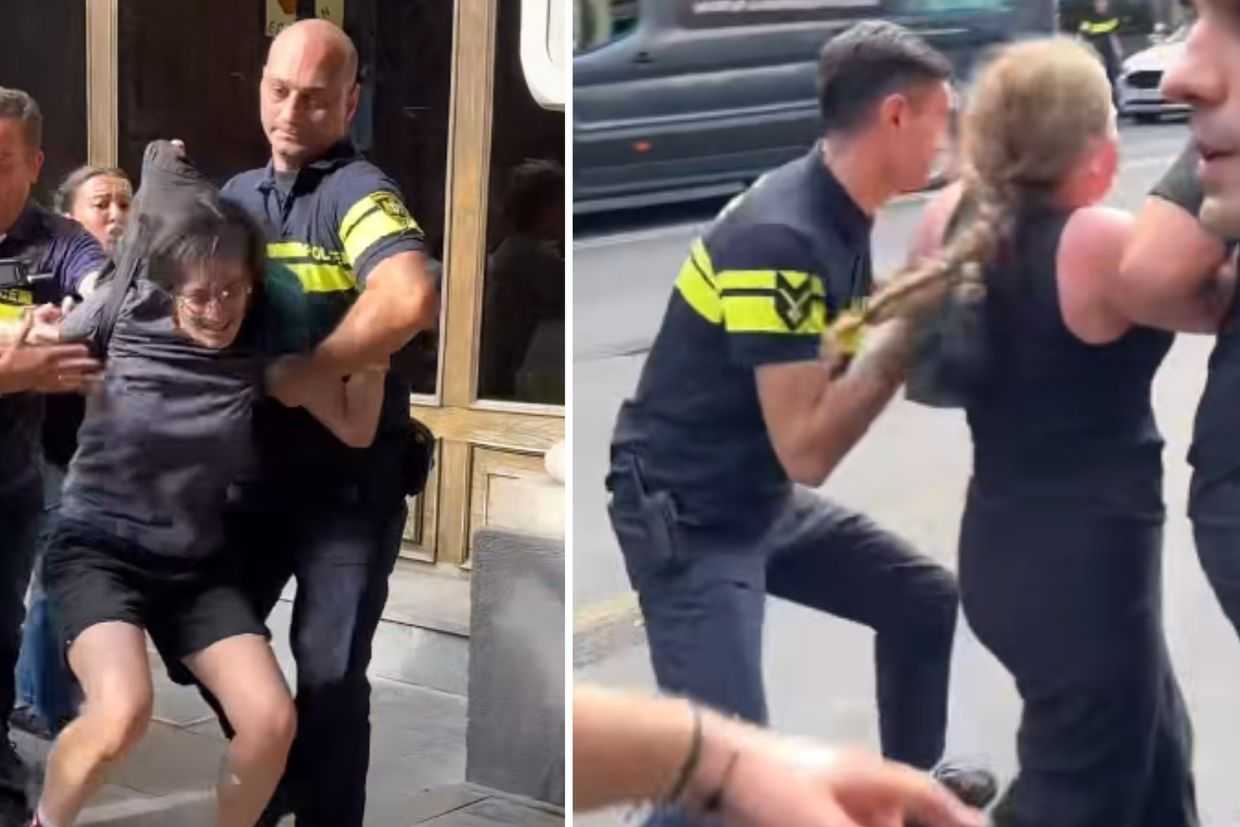
Georgian Dream founder Bidzina Ivanishvili has promised to ‘apologise’ to South Ossetians for the actions of the previous government during the 2008 August War, prompting anger and condemnation from relatives of soldiers killed during the war.
Ivanishvili made his campaign promise during a meeting on Saturday with residents of Gori, a city located around 10 kilometres from South Ossetia. During the 2008 August War, Gori was repeatedly bombed by Russia, in addition to being occupied by Russian troops.
During his speech, Ivanishvili claimed that Georgian Dream needed to obtain a constitutional majority in the parliamentary elections for four reasons: to declare the oppositional United National Movement (UNM) and ‘its satellite successor parties’ unconstitutional and to apologise to Ossetians for the 2008 August War; to adopt a constitutional version of the anti-queer bill; to adopt a constitutional law by which Orthodoxy would be ‘declared to be the pillar of the identity of the Georgian state’; and lastly to ‘restore’ Georgia’s territorial integrity.
Ivanishvili said that ‘immediately after the elections on 26 October, when the instigators of the war will be tried, when all the perpetrators of the destruction of the Georgian–Ossetian brotherhood and coexistence will receive the strictest legal answer, we will definitely find the strength in ourselves to apologise for the fact that, by the task, the traitor [UNM] in 2008, consigned our Ossetian sisters and brothers to the flames’.
Ivanishvili did not specify who he was referring to regarding the supposed order UNM received to begin the war. However, he explained that ‘we fully realised that all this [the 2008 August War] was a well-planned provocation from the outside against the Georgian and Ossetian people’.
‘And since one of the most important cornerstones of the Christian faith of us Georgians and Ossetians is precisely forgiveness, I am sure that the fratricidal conflict that the enemies of Georgia have created for our people will end with historical mutual forgiveness and sincere reconciliation,’ Ivanishvili said.
Last month, 16 years after the 2008 August War, the ruling Georgian Dream party accused the formerly ruling UNM party of starting and provoking the war, vowing again to punish the opposition after October’s parliamentary elections.
At the time, Georgian Dream railed on the role the formerly ruling UNM party played in the conflict. They cited a 2008 Council of Europe Parliamentary Assembly report suggesting that Georgia’s shelling of Tskhinvali (Tskhinval) without warning played a part in provoking ‘open and fully fledged warfare’.
[Read more: Georgian Dream accuses former government of ‘provoking’ 2008 War]
According to RFE/RL, around 20 people gathered in Gori to protest Ivanishvili’s statements, while around one hundred gathered in front of parliament in Tbilisi on Sunday.

He said on Sunday that South Ossetia expects ‘not only verbal declarations but also practical steps, including within the framework of the Geneva discussions’.
‘At the same time, the independence of South Ossetia cannot be a subject of discussion’, the state news agency RES reported him as saying.
‘Sorry for today’s Georgia’
Ivanishvili’s pre-election promise to apologise was heavily criticised both by the opposition and the families of the soldiers who died during the 2008 August War.
Valeri Elizbarashvili, the son of Colonel Davit Elizbarashvili, who died in the war wrote on Facebook: ‘I’m sorry to our heroes, we didn’t deserve your sacrifice’.
Tea Tabatadze, the wife of Shmagi Sopromadze, who also died in the war, apologised to her deceased husband for ‘today’s Georgia’ in a post on Facebook.
‘I’m sorry, Shmagi […] I’m sorry for today’s Georgia… It probably wasn’t worth it […] My heart aches for your unappreciated sacrifice’, she wrote.
Teo Tsilosani, the wife of Emzar Tsilosani, a Georgian soldier who died during a battle in the Shindisi village, asked if Ivanishvili considered Georgia to be an ‘aggressor’.
‘Was my husband’s sacrifice for the country’s freedom in vain? Are we an aggressor country? And did [he] fight in the war of the aggressors? What should I say to his soul? What should our children be proud of? When government representatives come down and pose at Emzar Tsilosani’s grave, who was Emzar? Can you answer me?’ she wrote.
‘Who should my children apologise to? The Russians? Ossetians? Or who, tell me the government!!!’
The chair of the UNM party, Tina Bokuchava, told journalists that ‘Ivanishvili’s statement in Gori was one of the most shameful, most disgusting, traitorous statements he made’.
‘What does he say to the families of our national heroes, their spouses, mothers, children, that we should all apologise to them before the enemy? Georgia does not apologise to the enemy, this is an extremely insulting, anti-state, anti-Georgian statement’, Bokuchava said.
The oppositional For Georgia MP Beka Liluashvili told journalists that ‘one of the strongest of Ivanishvili’s statements was that Russia, as an aggressor and an occupier state, was completely removed from responsibility. He seems to have completely blamed this responsibility on the West, which I think was the main focus of his speech’.
‘For an additional 1–2 votes and in order to simply survive this election, Georgian Dream had the nerve to do a lot of things’, he said.
On Friday, the latest Edison Research survey for the opposition-leaning TV channel Formula was published. In response to the question ‘If the parliamentary elections were held tomorrow, which party would you vote for?’, the first place was accorded to Georgian Dream, with 34% of the votes. The next biggest three were Unity – UNM, Strategy Aghmashenebeli, European Georgia – 19.2%; Gakharia – For Georgia – 10.6%; Strong Georgia: Lelo, For the People, Freedom Square, Citizens – 9.8%.
Georgian Dream rushes to defend Ivanishvili
On Monday, several high-ranking members of the ruling Georgian Dream party defended Ivanishvili’s initiative.
The Mayor of Tbilisi and Georgian Dream’s General Secretary, Kakha Kaladze, said that the media, civil society, and opposition were ‘speculating on dead heroes’.
‘None of our heroes would have died if it weren’t for [the former UNM government’s] dirty politics’.
The speaker of the parliament, Shalva Papuashvili, stated that ‘the peaceful path involves only walking in the path of reconciliation. Reconciliation implies repentance and mutual forgiveness’.
Papuashvili claimed that for opposition and non-governmental organisations, ‘the European way is the way without Abkhazians and Ossetians’.
‘We have no greater goal than restoring territorial integrity. Some parties have other goals and are ready to sacrifice our territorial integrity for these goals. The restoration of territorial integrity, as it turned out, is aimed at the opposition and some NGOs through war. They showed it to us in 2022 [when Russia invaded Ukraine], when they said that we should use the window of opportunity [to restore territorial integrity], and they showed it today, when they say that there should be no reconciliation, the Ossetians are guilty, and they declared the whole nation guilty of war’, Papuashvili said.
Nikoloz Samkharadze, the chair of the Foreign Relations Committee of Parliament, told media that ‘when it comes to reconciliation, it does not happen without admitting mistakes’.
‘Of course, this does not mean that mistakes should only be recognised by the Georgian side, the mistake should also be recognised by the other Ossetian side, which is a common occurrence in the process of reconciliation’, he said.
‘Bidzina Ivanishvili’s statement was about fellow Ossetian citizens living in Tskhinvali and reconciliation with them. That Russia is an aggressor and an occupying state is an unequivocally proven fact’.
Prominent Kremlin propagandist Margarita Simonyan welcomed Ivanishvili’s promise and wrote on Twitter that ‘Georgia is behaving in a disconcertingly adequate manner. As if it had come out of a long-term binge or psychosis’.
For ease of reading, we choose not to use qualifiers such as ‘de facto’, ‘unrecognised’, or ‘partially recognised’ when discussing institutions or political positions within Abkhazia, Nagorno-Karabakh, and South Ossetia. This does not imply a position on their status.









